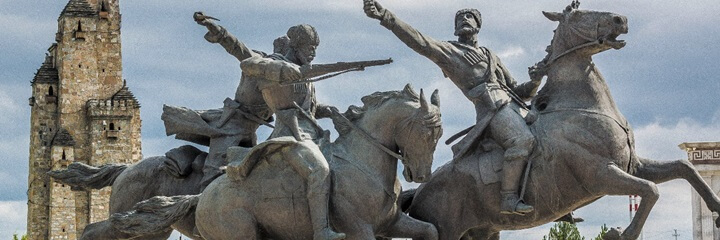Off the beaten path in Europe: 4 reasons why you should travel to the North Caucasus instead of Italy
If you are planning an overseas trip in the near future, odds are it’s to somewhere in Europe…..right? A large % of the world’s travel money is spent in Europe, and understandably so, with its vital place in world history. In 2018, six of the world’s top ten most visited countries were in Europe, including:
1. France – 86+ million visitors – A no-brainer: Paris, the Louvre, and Eiffel Tower
2. Spain – 81+ million visitors – Barcelona, beautiful beaches, world-class football teams, etc.
3. Italy – 58+ million visitors – Florence, Venice, Rome, Da Vinci…..should I go on?
4. The UK – 37+ million visitors – London, Big Ben, Buckingham Palace, world-famous golf courses…..
5. Turkey – 37+ million visitors – Istanbul, beautiful Black Sea resorts, crossroads of Europe & Asia, coffee!
6. Germany – 37+ million visitors – Incredible mountains, beautiful architecture and castles
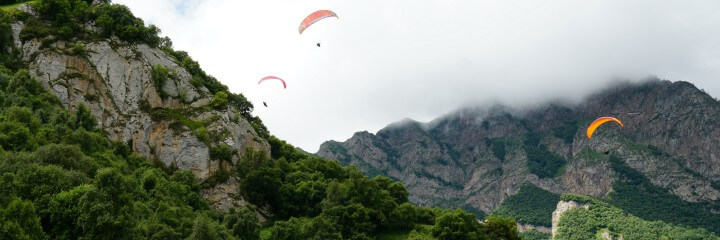
Recently, my family and I visited Italy for the first time. There were some things we really loved about it for sure:
-Incredible history – We got to see Da Vinci’s original fresco painting of the Last Supper, as well as Michaelangelo’s famous David sculpture
-Tasty food – The pizza was all we had hoped for!
-Natural beauty – We spent several days in the foothills of the Italian Alps, seeing quaint Italian towns on beautiful Lake Como
Living in the North Caucasus Mountains of Russia, though, and hosting international travelers on a regular basis, got me thinking: what kind of place do I actually prefer to travel to? There are distinct differences between these kinds of places, i.e. tourist-destination Italy and never-heard-of-before North Caucasus. And I realized, I much prefer off-the-beaten-path travel!
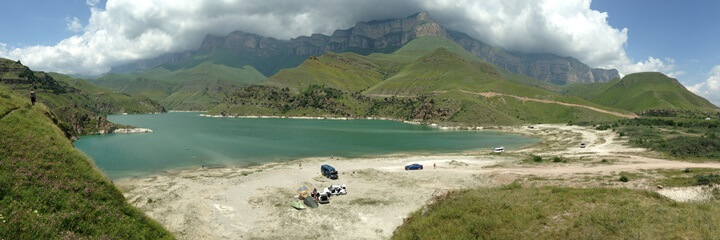
Before you accuse me of heresy and blaspheming all that is good and decent in Europe, Italy, and beyond, hear me out. Here are 4 reasons why I prefer travel in the North Caucasus to Italy, and why I think you should too:
1. No tourist traps – Have you visited one of Europe’s top destinations, and were overwhelmed at the sheer mass of fellow travelers surrounding you at each stop of your journey? Especially with 3 little kids and a stroller, Milan was not a very pleasant experience for us at places like the main Cathedral/Duomo and its surrounding Plaza, the Grand Gallery, and the famous Sforza Castle complex. It was nearly impossible to keep our family together (especially our kids) and we were constantly being jostled around by the masses. It felt more like an exercise in stress-control than actually enjoying our surroundings. Don’t get me wrong, these were beautiful places (especially the Milan Duomo and its intricate architecture), the crowds were just too much.
Let me assure you: there is not one place in the entire North Caucasus region where you will feel this way! In fact, it’s pretty common for travelers to go their entire trip in the region without encountering another native English-speaker along the way. Even at Mt. Elbrus, the North Caucasus’ top attraction as Europe’s highest summit, you can come and go without running into other foreigners if you’re not there during peak climbing season.
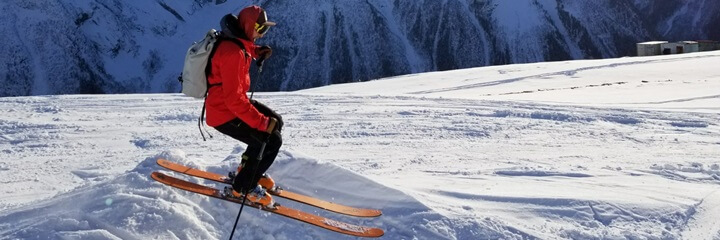
There is a great draw to this kind of travel, as it enables you to see places as they are on a daily basis: how life functions, local people going about their business, and more uninterrupted engagement with the historical landmarks and cultural traditions of the region. Ingushetia’s tower complexes are an example of this. Despite it requiring extra steps with special permits to travel there, you experience a strange sensation once on site: very few other vehicles, complete silence at the lack of surrounding infrastructure, and learning previously unknown history at an unrushed pace. Dagestan’s mountain villages are the same way, their traditions and ways of life remaining relatively untouched by modern society. That is my kind of travel!
John David from Texas reflected this same sentiment on his 2018 trip: “I’ve always dreamed of traveling somewhere off the beaten path in Europe or Asia, but I’d failed to make the dream a reality because of the complexity of travel there. Since Beyond Red Square is run by Americans living in Russia, they are able to make the logistics seamless. Their knowledge of the area was crucial, allowing us to experience the most interesting parts of the region we otherwise wouldn’t have known existed…”
2. Experience local hospitality – Italians are stereotyped as being warm and welcoming, whereas Russians are stereotyped as being cold and aloof. Of course, experienced travelers know that people are people no matter where you go, and you will typically have both positive and negative experiences with locals on any trip.
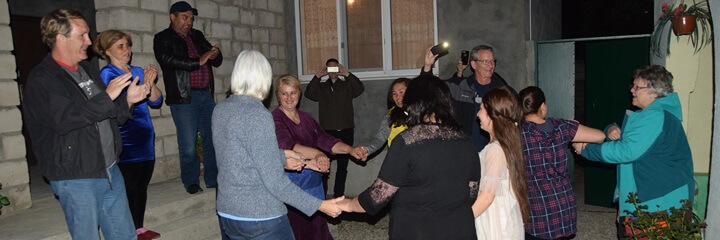
That being said, people in the North Caucasus LOVE guests. It is part of their culture to highly honor and serve guests. And unlike in Italy, people here don’t get many foreign guests. Because there is such a small flow of foreign tourists to this region, often the red carpet is rolled out for guests and they are given the royal treatment. In this sense, it’s much easier to have genuine interactions with local people in the North Caucasus, because it hasn’t been overrun with foreign tourists.
I have experienced this personally many times: taxi drivers refusing to accept payment, souvenirs given for free, spontaneous invitations for tea (or dinner!) at a local person’s home, and the list goes on. It’s a huge plus that mass tourism hasn’t yet overwhelmed the North Caucasus, because it enables foreign tourists to have genuine encounters with local people and culture. And more often than not, these chance encounters end up being the highlight of a person’s trip to the North Caucasus. It’s one reason why we strive to set up meals in local people’s homes for our foreign guests when they travel with us through the region; the Villanueva family from Maryland recounts their experience at Mt. Elbrus in a local family’s home here.
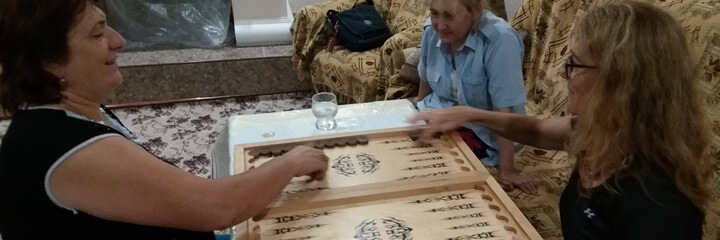
3. Journey into the Unknown – Of course, Italy has an incredible draw because of what is so familiar to many of us Westerners:
A. Art – Michaelangelo, Da Vinci, and the list goes on.
B. Religion – The Vatican and Biblical journeys of Jesus’ disciples’
C. History – Rome and its pivotal place in world history
D. Culture & Architecture – Are there any more photogenic cities in the world than Venice and its canals?
E. Food – Pizza, Pasta, and Bread – Carbs galore!
F. Sports – World-class football teams AC Milan and Juventus, and Winter Olympic-grade ski facilities in the North (Torino 2006)
There is a certain beauty to seeing and experiencing for ourselves these things and places that we’ve always heard of and were such an ingrained part of our upbringings.
Another aspect to travel, though, is going somewhere that is completely unknown to you, and allowing your travel to be a gateway into a new world of people, places, and history.
Here are just a few things that folks learn about when traveling in the North Caucasus, that aren’t taught in history classes in the West:
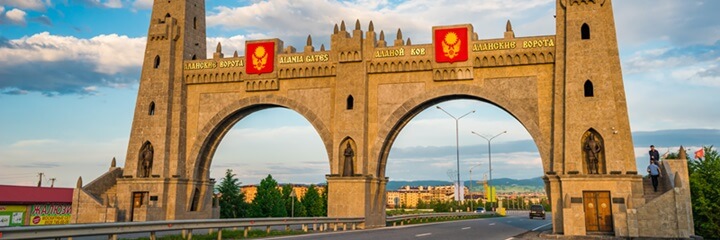
A. Geography – The Caucasus Mountain Range runs from the Black Sea on the West (bordering Turkey, Bulgaria, Romania, and Ukraine in Europe) to the Caspian Sea on the East (bordering Iran, Kazakhstan, and Turkmenistan in Asia). The Silk Road historically traversed through this region, serving as a gateway between Europe & Asia.
B. Languages – More than 40 languages are spoken in the North Caucasus, 30+ of them in Dagestan alone. Most of the languages are indigenous to the mountain region, while others have Turkic, Iranian, and Indo-European origins.
C. Religion – Although primarily adhering to Islam today, the peoples of the North Caucasus have a fascinating history of religion, with waves of both Christianity and Islam coming from the Middle East, Ottoman Empire, and Russian Empire in different centuries, as well as ancient pagan belief systems, some of which still live on today.
D. Culture – The guest is king (or queen!) in the North Caucasus, as many locals will drop what they are doing for guests to show the famous hospitality the region is so well-known for. Plan to put on some extra weight in your time here, as the carb-heavy diet will be generously heaped on your plate over and over.
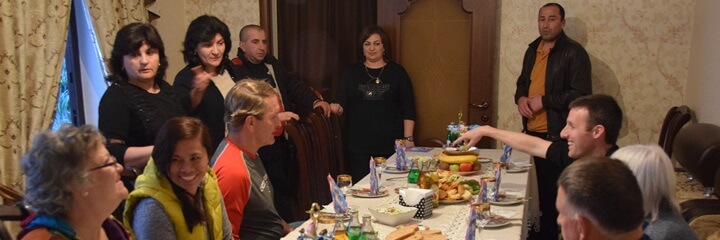
E. Famous figures – Learn about historical figures that are revered in the North Caucasus but practically unheard of in the West, such as religious leader Imam Shamil of Dagestan, poet Kostya Khetagurova from Ossetia, and Sheikh Mansur from Chechnya.
What I’ve found in living and traveling in the North Caucasus, is that history and culture are just as important to people in unknown parts of the world as they are to people in more popular travel destinations. In fact, people in the North Caucasus may even more greatly value their history and land, because their story isn’t as widely told around the world, and they are the ones responsible for it to be passed on. Traveling here allows you to take part in their story and become a mouthpiece for your newfound friends and knowledge back home. Check out the Cash Family’s take on what they learned about previously unknown (to them) Caucasus history and culture here.
4. No English! – Living in the North Caucasus, it’s extremely rare that we will hear English (or any other European language for that matter) spoken in public. Actually, the opposite happens here: when local people hear us speaking English with our kids, their ears immediately perk up, as it’s not every day they get to hear English spoken by native speakers.
In Italy, our ears were almost in shock at the amount of English we heard around us, and at the ease which local people could switch from Italian to English if prompted. We consistently heard other foreign languages that we recognized and in part understood (Russian, Spanish, German, etc.). While this at times was really helpful for navigating our way around the country, it also was a reminder that we were on a well-trodden, even beaten-down, path.
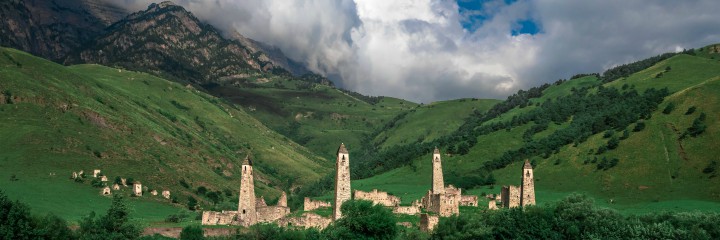
Now picture yourself in the North Caucasus. Russian is the lingua franca, which besides the basic “Spasibo” and “Nyet” phrases, is not exactly a household language in the West. But then imagine hearing some of the 40+ local Caucasus languages being spoken around you, which are the definition of foreign: Balkar, Ossetian, Chechen, Avar, and the list goes on. The foreignness of the local language can help you come to grips with this simple fact: I am way out of my comfort zone, and that is okay!
I commend to you travel in places where English is rarely spoken, as you are opening the proverbial door to people, places, and history that were previously unknown to you. Just because you didn’t know about it before, doesn’t mean it didn’t happen, or is any less important than the European history that we all learned in school. Travel to the North Caucasus where its hard to find another English-speaker!
You may know little about the North Caucasus, or scoff at this idea that you could possibly enjoy a trip here more than to Italy. But if you are interested in learning more about a private trip to this region, we would love to help. We are Americans and live here, and strive to provide an authentic experience of the local culture and people for our travelers. Contact us today if you are ready to experience this previously unknown corner of Europe for yourself!

